
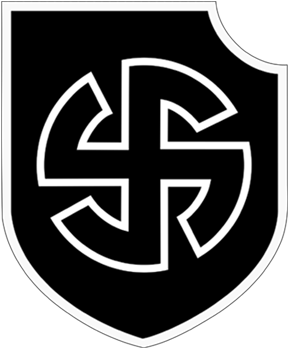
Interview with Rudolf Ternedde, the Regimental Commander of the elite 11. SS-Panzergrenadier Division "Nordland", Hamburg, 1989.
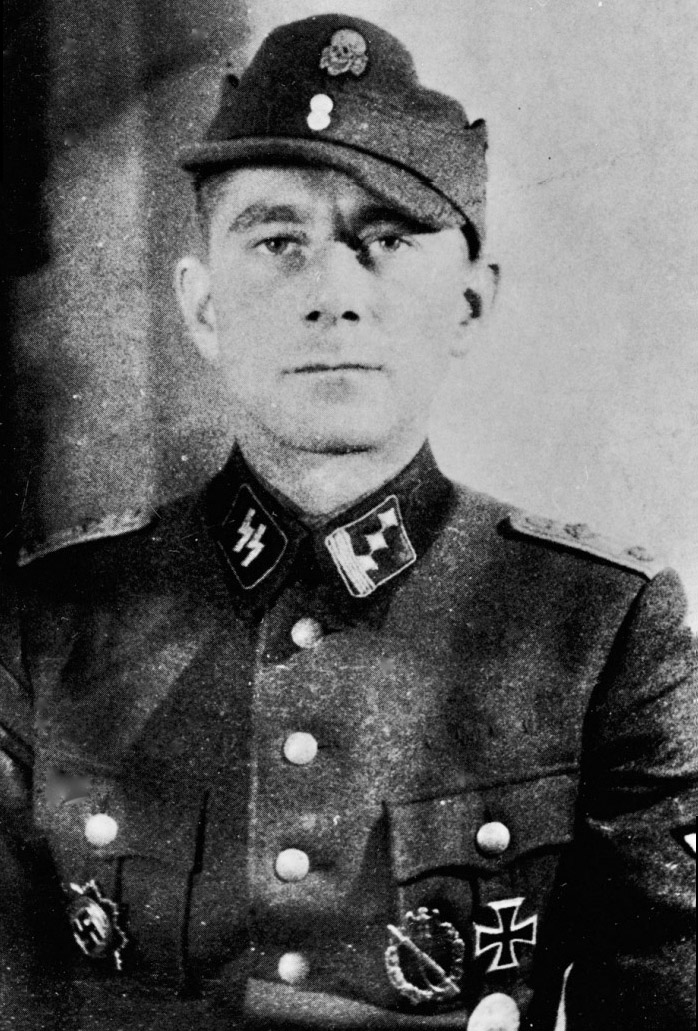



Interview with Rudolf Ternedde, the Regimental Commander of the elite 11. SS-Panzergrenadier Division "Nordland", Hamburg, 1989.


Thanks for letting me speak with you. To start, why did you choose the SS as a career path?
Rudolf: Well young man, back in 1932 it was not a bad thing to be in the SS. It was quite the opposite of today, the SS was seen as the most revered of all professions. I have to keep silent today of course, but I also joined the NSDAP before the Führer became Chancellor. At the same time, I was interested in the SS, as it was a very special group of men who were pledged to the defense of National Socialism and had better discipline than the SA. For this I was awarded the Old Fighter's Chevron for membership before 1933. I do not remember exactly what my motivations were at the time, I was just a young man, but I fully believed in the idea. We were treated as soldiers in a very private and elite regiment. To be admitted one had to prove his pure German descent, with no mixed race. Back then if you wore the black uniform you had the respect of the people. The SS was a side position, like a club you reported to for special events at first. You could not wear the uniform except while on duty, you could only wear a pin showing membership.
I remember people would pay for meals and drinks, which was nice. The girls all loved an SS man, they lined up to dance with us, and they too had to prove pure blood before we could marry. That is how serious Himmler was with keeping us as the elite of the nation and movement. I was given the Juleuchter by him for Christmas once and he spoke of our being like a holy order to the universe. How we were guiding lights for future generations, who would praise our loyalty and follow our examples. That was a long time ago, look how wrong he was; life sure turned out differently. Many comrades lie in unmarked and uncared for graves, with enemies all around.
If the SS was German, how did you end up in a division with foreign volunteers?
Rudolf: Well, you must understand the times back then, Bolshevism was hated with a passion all over Europe. When war began with Russia, volunteers flocked to join Germany from all countries in Europe. I am German but my family origins are from up north in Denmark. We have borne the mark of Dane. I was asked to take part in the building of Nordland, which took in men from Denmark, Holland, and Norway. These were the main ones, and of course Germans. I want to state there was no difference in views or treatments of us compared to the LAH, Reich, or any other division. Our only difference was not everyone was fluent in German, and we allowed the men to speak their tongues. By 1943, I was an officer with combat experience and held the Iron Cross which gave me respect with my men. We led them into combat against the Red Army and I will tell you we were placed on the defensive from the first day. The German front in the east was holding fast against unequal odds, but gone were the days when attacks on a large scale could be launched. Kursk was a last gasp I believe, and it was hoped Stalin would ask for peace.
This did not happen and the war went on; Germany was but a tiny island against a roaring storm. I will tell you the volunteers of Nordland put up one hell of a fight against the Reds; we caused them such heavy losses that they would put prices on the heads of our men. After their attacks, I would look around the field and see literally hundreds of their soldiers felled, we would lose maybe 15 or 20, but they would lose 200 to 300. My men used super-human strength to take out armor, often with a mine or grenade. There was a conviction in us that few could understand, we were the sword and shield against the devil's wrath. Many of the non-Germans would tell you they did not fight for Hitler or Germany; they fought to defeat an evil so great that they were willing to die. We stood united in that idea, and we slowed this advance, but with the fall of the Soviet Union, that evil now will spread across the earth. I read more and more how the Jews are fleeing and coming west. They knew what was in store for them.
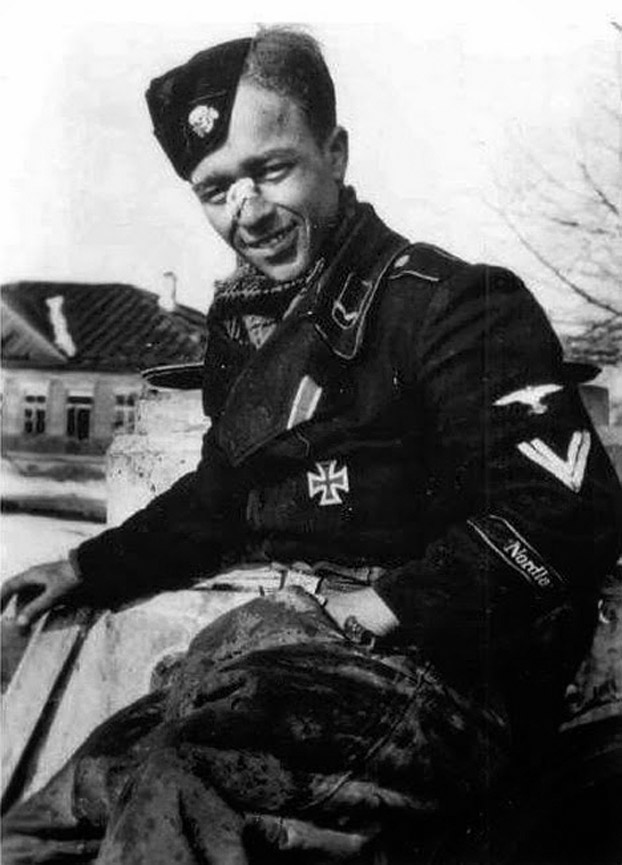
[Above: Nordland Danish volunteer SS Sturmann Kurt Tebring atop his Panther tank. Note his "Nordland" cuff title.]

I understand you were awarded the German Cross in Gold, Gold Close Combat Clasp, and Honor Roll Clasp, amongst others. How did you come to be awarded so many medals?
Rudolf: All you young ones only care about the medals; they are just metal, nothing more. They signify the battles we survived, when so many did not. Today many of my comrades will tell you these are tokens of our memories with comrades. They call us to remember the faces and names of those who were with us at the moment of the actions that these were given for. I was a leader in Regiment Dänemark and, together with my men, we faced attack after attack from the Reds, and I was able to survive over fifty times of them coming close to me. My comrades helped drive them back every time and we mostly survived. This clasp is very rare indeed as many comrades never made it through so many attacks, I had a special angel maybe. The German Cross in Gold was to honor acts of leadership that saved my men from complete destruction. They made it possible as they bore the brunt of the enemy and we held them at bay until we could retreat some more. It was hell on earth to see the many battles we were in; my good comrades fell and have disappeared.
These medals are my remembrance of my comrades, of our cause, and the brotherly bond we all had back then. Things were very clear, you either fight like a warrior, or die like a slave. We chose to fight, and men were given the chance to go back home, few did. We gave our last drop of blood in Berlin, defending an idea that died. I was considered to be a highly decorated soldier, the medals showing my bravery and fortitude, today they are nothing but a silent testament to the hell we went through. I am grateful to have served my nation with honor, but always remember those who did not get to come home to their mothers or wives.
Can I ask about the Battle of Berlin? It is interesting that foreign units were the final defenders of Hitler.
Rudolf: Yes, Berlin was where Nordland was destroyed; it was in May of 1945. I still remember our retreat and then it was said we would move to Berlin. We marched on Reich Road 1 and could see the smoking ruins from far off. I remember the abandoned farms and homes, some had been hastily left with belongings strewn about. We saw one family who refused to leave saying the Reds won't be so bad, I am sure they were old communists and I bet they were surprised later on. In Biesdorf we again came across civilians that were hiding, refusing to leave. We wondered why people did not believe the warnings of what the Reds were doing. I saw with my own eyes civilians who were victims of the "liberators" of Europe. We retook some small towns and any civilians left had been raped and killed. We had no time to identify or bury them, let alone document it. Few photos were able to be taken of the carnage and crimes, now it is lost to time. I truly felt for the people in Berlin and what befell them.
We tried holding the Reds at the Spree [river], but they used massed artillery fire to mask crossings by boats and would outflank us, causing more retreats. This went on every day, draining our battalion. We did get some navy men before the battle, but they were not frontline soldiers and they fell as easy prey.
By this stage the Waffen-SS was a mix of volunteers and conscripts who had basically been force-transferred from the Luftwaffe and Kriegsmarine. These types usually had to be put in support roles as they were not frontline soldiers. In time they all faced the enemy whether they wanted to or not, and some did well. And yes, it is quite interesting that the final defenders of the Führer were SS men from foreign volunteer units. Men from France, Denmark, Sweden, and Norway defended the bunker until the last hour. They did so believing in the idea that Bolshevism must be defeated at any cost, in order to save the world from enslavement. All men who went through the war in the SS will tell you that, we saw a threat and knew this was the idea and the nation [Germany] who could take it on. We failed however and how will the world forgive us? They are ignorant of what our fight was about. What we did, ending in Berlin, we did for all of Europe; forget that never.
Can I ask your views on the crimes the Allies say the SS committed?
Rudolf: All I will say is war is war, bad things were done by all sides and it is not correct to just blame one side. We would see something bad, and then we responded to it. We responded to the bad things the enemy did, does that make us guilty? We did not take part in anything that would bring shame to us; the claims are not justified, and in many instances, I believe were propaganda. Due to fear and intimidation, the winners were able to force comrades to say or agree with things that were not true. They put many men on trial; even today it goes on, attempting to prove that we were bad soldiers. You are hearing only one side and because of that you are not getting the full facts. I know many comrades who were directly accused of crimes in the east, based on nothing more than a person saying they saw the crime. No evidence at all, only words were enough to cause a sensation and accusations. Can you imagine the power of being able to say someone did something, then that person is arrested, charged, and found guilty on only your word?
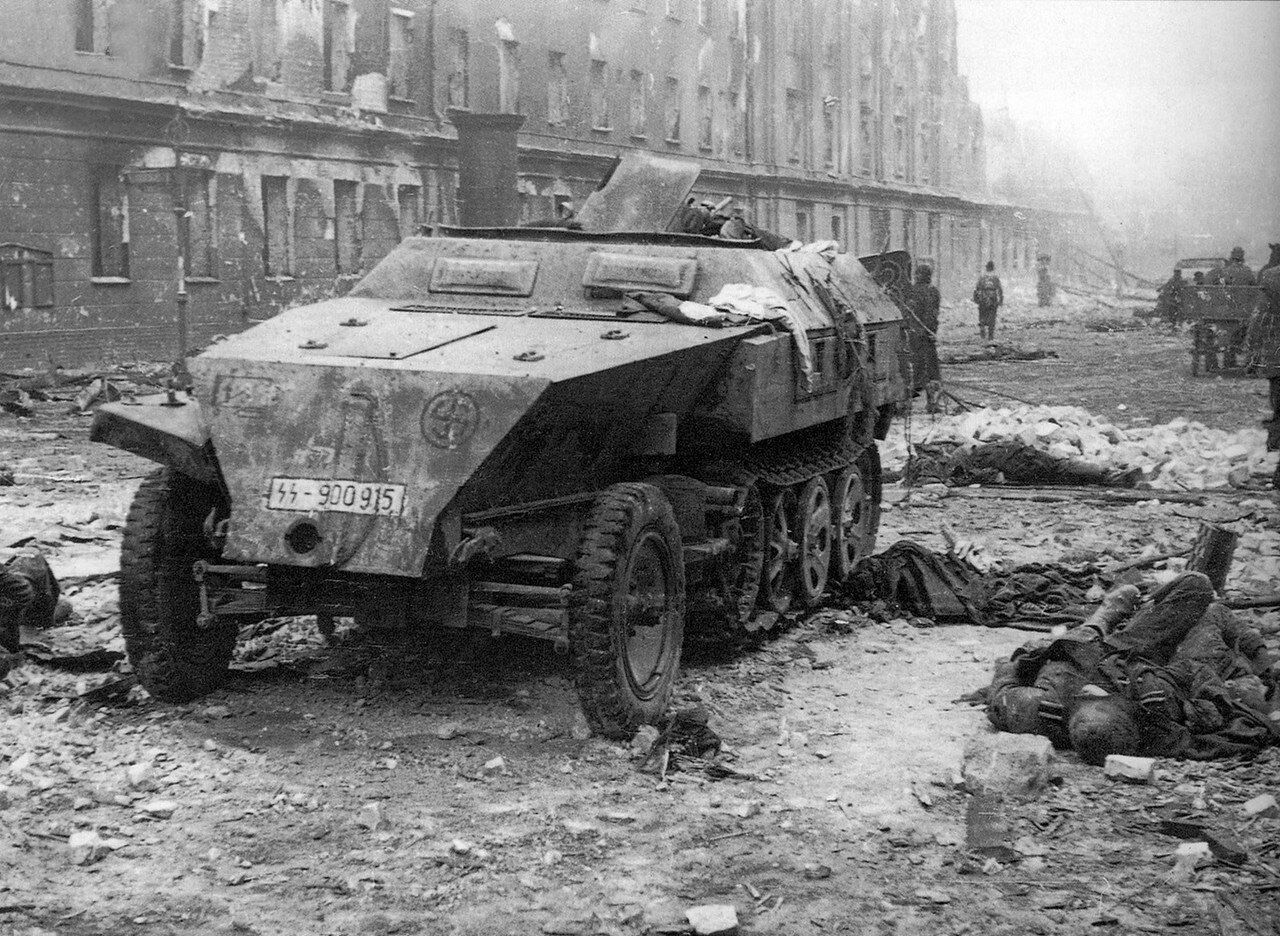
[Above: Burned-out armored vehicle of "Nordland" in Berlin, May 1945. Inside and around it are the broken bodies of some of Europe's bravest defenders.]
[Above: The wheel of existence. 'Var Ære er Troskap' (Where Honor is Fidelity).]
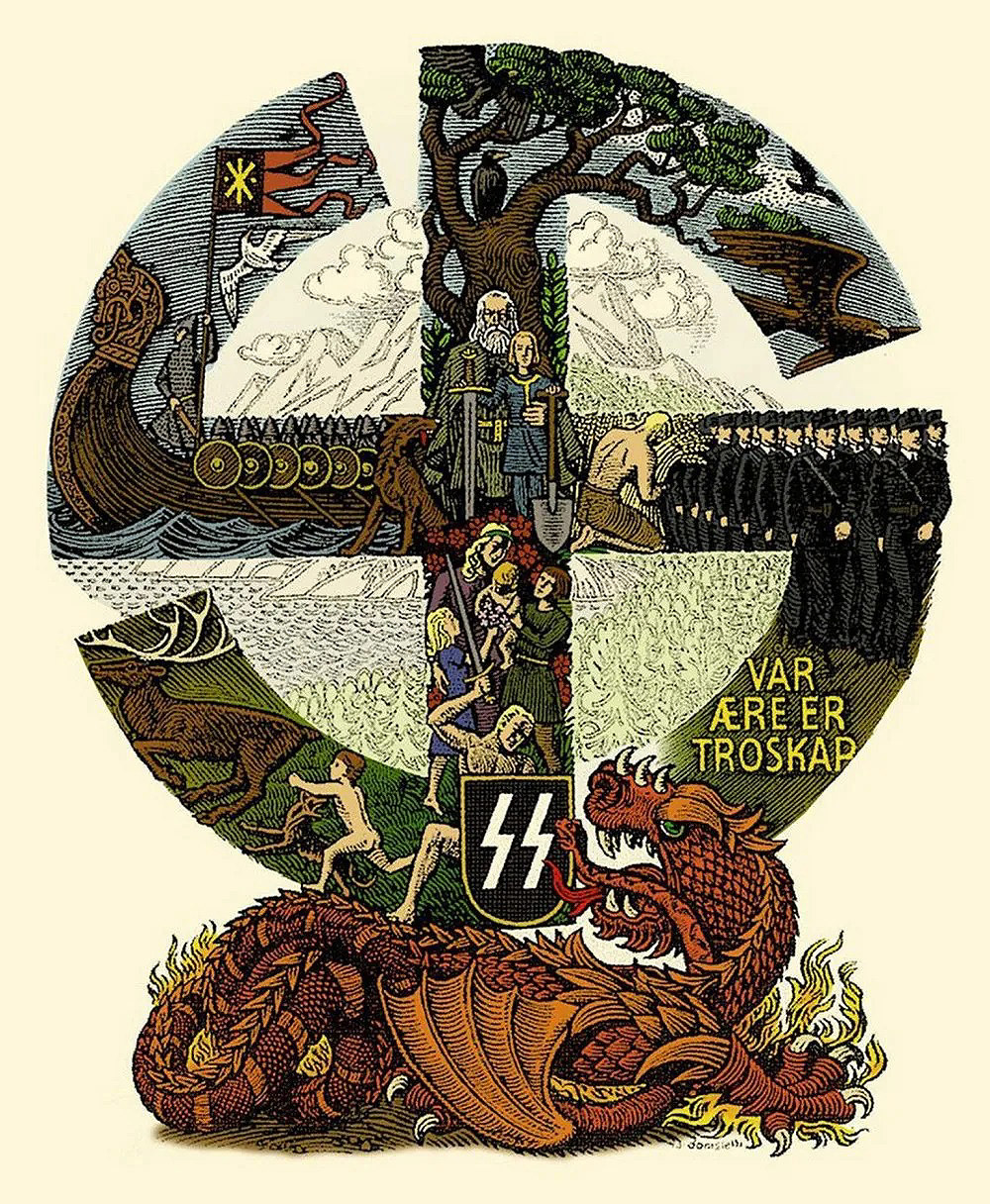
Back to Interviews